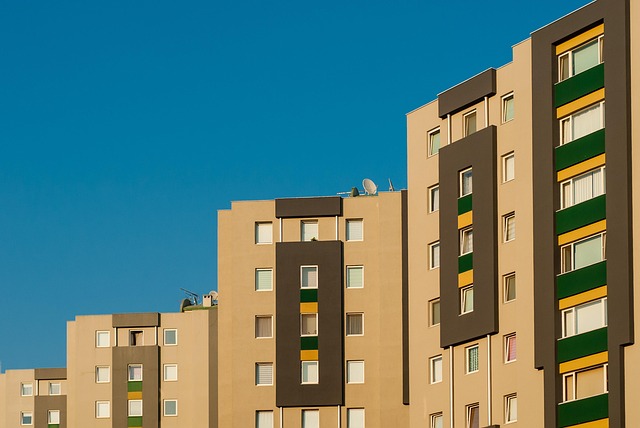How to Find Student Accommodation in Greece

Finding suitable accommodation is one of the most important tasks for students planning to study in Greece. Whether you’re an international student or a local one moving away from home, securing affordable and comfortable housing can significantly impact your academic experience. Greece offers a variety of housing options, ranging from university dormitories to private rentals. Here’s a step-by-step guide to help you navigate the process of finding student accommodation in Greece.
1. Types of Student Accommodation
Before starting your search, familiarize yourself with the types of housing available:
University Dormitories
- Pros: Affordable, close to campus, and often include utilities.
- Cons: Limited availability, shared facilities, and sometimes outdated amenities.
- Cost: €100–€300 per month, depending on the institution and location.
Private Rentals
- Shared Apartments (Coliving): Renting a room in a shared apartment is popular among students. It’s cost-effective and fosters a sense of community.
- Cost: €200–€400 per month for a single room.
- Studio Apartments: Ideal for students who prefer privacy but may be more expensive.
- Cost: €350–€600 per month.
- Full Apartments: Suitable for groups of students sharing rent.
- Cost: €500–€1,000 per month.
Hostels and Guesthouses
- Temporary housing options for short stays while searching for permanent accommodation.
- Cost: €15–€30 per night.
Homestays
- Living with a Greek family provides cultural immersion and support.
- Cost: €300–€500 per month, including meals.
2. Start Your Search Early
Accommodation in popular student cities like Athens, Thessaloniki, and Patras can fill up quickly, especially at the start of the academic year (September/October). Begin your search 2–3 months before your arrival.
3. Use Online Platforms
Several websites and apps specialize in student housing in Greece:
General Rental Websites
- Spitogatos : A leading platform for renting apartments in Greece.
- Xe.gr : Lists properties across the country.
- HomeAway : Offers short-term rentals and homestays.
Student-Specific Platforms
- Erasmus Play : Focuses on student accommodations worldwide, including Greece.
- Uniplaces : Provides verified listings tailored to students.
- HousingAnywhere : Connects international students with available rooms and apartments.
Social Media and Forums
- Facebook Groups: Join groups like “Rooms for Rent in Athens” or “Thessaloniki Student Housing.”
- Reddit: Subreddits like r/Greece or r/StudentHousingGreece can provide tips and leads.
4. Contact Your University
Universities often assist students in finding accommodation, especially international ones.
Dormitory Applications
- Submit your application early through your university’s housing office.
- Priority is usually given to first-year students, international students, or those with financial need.
Housing Lists
- Many universities maintain lists of trusted landlords or recommended neighborhoods near campus.
Orientation Programs
- Attend orientation sessions where housing options are discussed, and networking opportunities with other students arise.
5. Explore Popular Neighborhoods
Certain areas are known for their proximity to universities and vibrant student life:
Athens
- Exarchia: Known for its bohemian vibe, affordable rents, and proximity to the National and Kapodistrian University of Athens.
- Pangrati: Quiet and residential, close to parks and Aristotle University campuses.
- Gazi: Trendy area with cafes and nightlife, slightly pricier.
Thessaloniki
- Kalamaria: Coastal neighborhood with modern apartments and easy access to Aristotle University.
- Ano Poli: Historic district with charming houses, popular among students seeking authenticity.
- Toumba: Affordable and well-connected via public transport.
Other Cities
- Patras: Koukouli and Agios Dimitrios are convenient for University of Patras students.
- Heraklion (Crete): Neapolis and Tria Pigadia are close to the University of Crete.
6. Budget Wisely
Consider all associated costs when budgeting for accommodation:
- Rent: The largest expense; negotiate if possible.
- Utilities: Electricity, water, heating, and internet typically range from €50–€100 per month.
- Deposits: Most landlords require 1–2 months’ rent as a security deposit.
- Agency Fees: Some agencies charge 10–15% of the annual rent for their services.
7. Visit Before Committing
If possible, visit potential accommodations in person before signing a lease:
- Check for cleanliness, safety, and functionality (e.g., plumbing, electricity).
- Ensure the neighborhood feels safe and convenient for daily commuting.
For international students unable to visit beforehand, ask for video tours or detailed photos. Always verify the landlord’s identity and read reviews if renting through an online platform.
8. Understand Lease Agreements
Carefully review rental contracts to avoid misunderstandings:
- Duration: Most leases run for 12 months, though shorter terms may be negotiable.
- Terms: Clarify payment schedules, utility responsibilities, and termination clauses.
- Language: Leases are often written in Greek; consider hiring a translator or asking a Greek-speaking friend for assistance.
9. Seek Support from Local Networks
Leverage networks to ease your transition into Greek student life:
- International Offices: Universities have dedicated teams to assist international students.
- Student Associations: Join clubs or societies to meet peers who can share housing tips.
- Local Communities: Engage with expat groups or Greek families offering homestays.
10. Consider Short-Term Solutions
If you’re unable to secure long-term accommodation immediately:
- Stay in hostels or Airbnb rentals for a few weeks while continuing your search.
- Reach out to your university’s housing office for temporary solutions.



